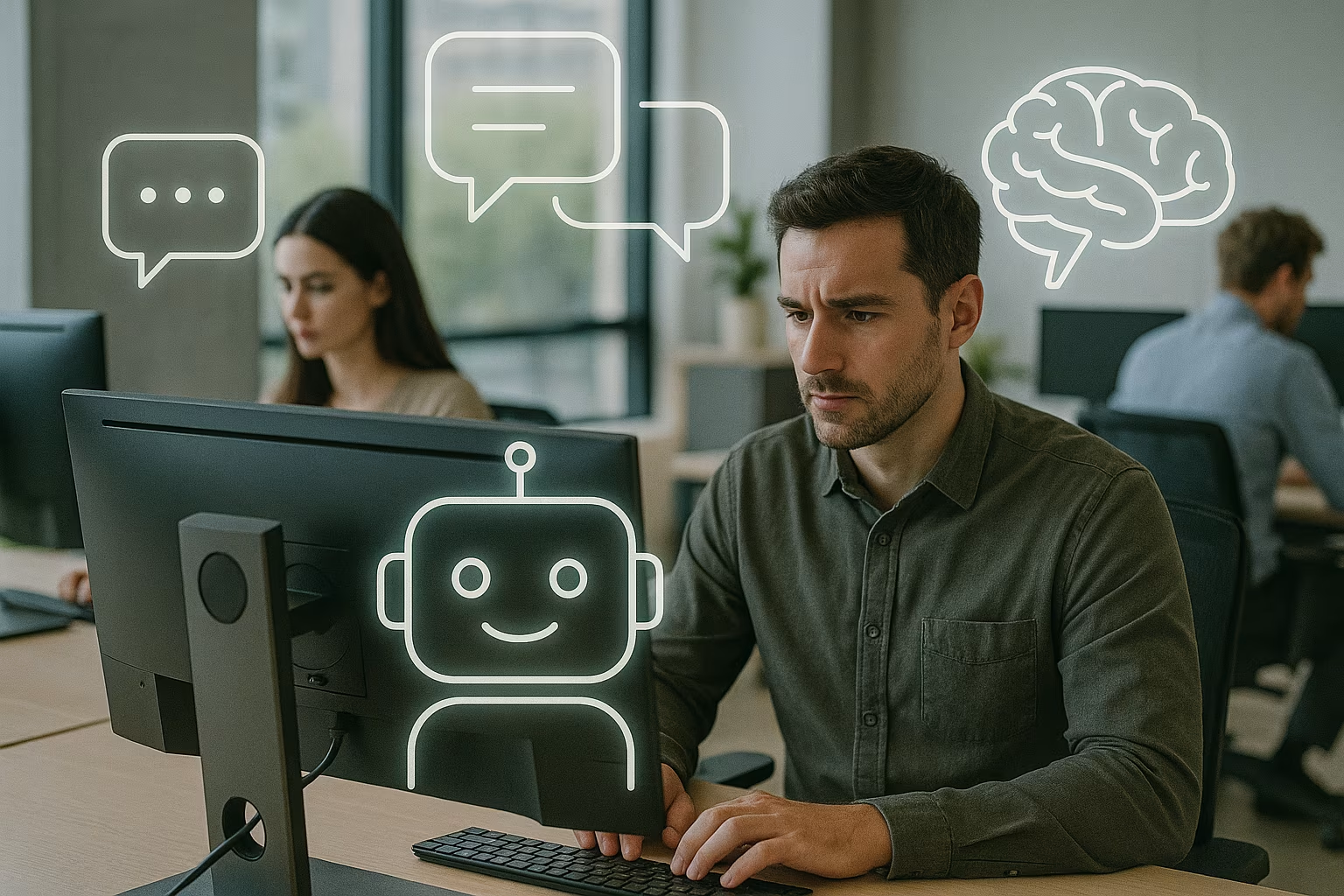As a practicing psychologist, I’ve always paid close attention to how technology influences human behavior, relationships, and work dynamics. In recent years, one development has captured my professional concern more than most: the increasing reliance on chatbots in the workplace. Whether used for drafting emails, summarizing meetings, brainstorming solutions, or even engaging in conversations meant for colleagues, chatbots are rapidly becoming a normalized part of office culture. While these tools undeniably offer efficiency and convenience, their growing role in professional settings raises significant questions about mental health, human connection, and the long-term effects on productivity and self-identity at work.
From a psychological perspective, the appeal of chatbots is understandable. They provide instant responses, reduce cognitive load, and help employees complete tasks more quickly. For workers under constant pressure to perform, chatbots act like a digital safety net. But as these tools become integrated into daily routines, I’ve noticed patterns among clients that suggest a shift from helpful assistance to unhealthy dependence. Several of my clients now describe struggling to draft their own communications without “running it through a bot first.” Others admit they rely on AI to generate ideas because they worry their own contributions won’t be “good enough.” This creeping self-doubt, masked by technological efficiency, is precisely what alarms me.
One of the most pressing concerns is the erosion of critical thinking. In psychology, we often emphasize the importance of problem-solving as a core life skill, tied closely to self-efficacy and confidence. When chatbots are used for every decision, employees risk outsourcing not just tasks but also the mental processes behind those tasks. Over time, this can lead to what I call “cognitive atrophy”—a decline in the ability to analyze, evaluate, and create independently. Much like relying too heavily on a GPS weakens our natural sense of direction, relying too heavily on chatbots could weaken our professional judgment and creativity.
Another issue I see is the effect on workplace communication and authenticity. Human-to-human interactions are rich with nuance, emotion, and subtlety. When employees begin filtering all their emails, presentations, or even casual messages through a chatbot, they risk losing their authentic voice. I’ve heard clients describe feeling “robotic” or disconnected from their own work because they no longer recognize themselves in the words being sent under their name. Over time, this can contribute to feelings of alienation and reduced self-esteem. The workplace becomes less about genuine connection and more about polished, machine-like exchanges.
The mental health implications go beyond self-doubt and alienation. Chatbots can subtly reinforce perfectionism, creating a cycle of anxiety for workers who feel pressured to produce flawlessly written communication every time. Instead of embracing human imperfection—which fosters authenticity and growth—employees may begin to fear mistakes, relying more heavily on AI tools to “cover up” their natural vulnerabilities. This dynamic not only increases stress but also diminishes opportunities for learning and resilience that come from making and correcting errors.
There is also the social dimension to consider. Many clients describe their workplace relationships as more distant since chatbots entered the picture. Fewer spontaneous conversations happen when people rely on AI for brainstorming. Colleagues who might once have exchanged ideas at a whiteboard are now quietly typing prompts into an app. Over time, this reduces collaboration, weakens trust, and makes the workplace feel less communal. For humans—who are inherently social beings—this erosion of connection has a direct effect on job satisfaction, motivation, and overall well-being.
To be clear, I am not opposed to technology. In fact, I encourage many clients to leverage tools that improve efficiency and reduce burnout. But the difference lies in balance. Chatbots should serve as supplements, not substitutes, for human skills. Used wisely, they can enhance productivity by handling repetitive tasks, allowing employees to focus on higher-level problem-solving and meaningful collaboration. The danger arises when these tools become crutches—when workers stop trusting their own abilities or engaging authentically with one another.
So what can employees and employers do to strike this balance? From my work with clients, I’ve identified several practical approaches. First, set boundaries around chatbot use. For example, use AI for drafting outlines but commit to writing final messages in your own words. Second, practice deliberate skill-building without technology—whether it’s writing, brainstorming, or presenting—to keep your natural abilities sharp. Third, foster environments where human imperfection is not just tolerated but valued. Leaders who model vulnerability by sharing their own drafts, mistakes, or evolving ideas help normalize authenticity in the workplace. Finally, create space for genuine collaboration. Encourage brainstorming sessions without screens, and remind teams that the best ideas often come from the messy, human process of working together.
The future of work will undoubtedly include chatbots, and ignoring them is neither realistic nor wise. However, as a psychologist, my responsibility is to highlight the unseen risks of overreliance. The human brain thrives on challenge, creativity, and authentic connection. If we outsource too much of that to machines, we risk not only losing essential skills but also weakening the very qualities that make us human in the workplace: empathy, adaptability, and resilience.
As professionals and organizations, we must ask ourselves hard questions now. Are we using chatbots to enhance human potential, or are we slowly replacing it? Are we building workplaces that value authenticity, or are we creating environments where polished perfection hides vulnerability? And most importantly, are we preparing future generations to think, create, and connect, or are we conditioning them to defer to machines at every turn?
For my clients—and for all of us—the challenge is not rejecting technology but reclaiming agency in how we use it. The healthiest workplaces of the future will be those where chatbots support, but never overshadow, the irreplaceable value of human thought and connection.





